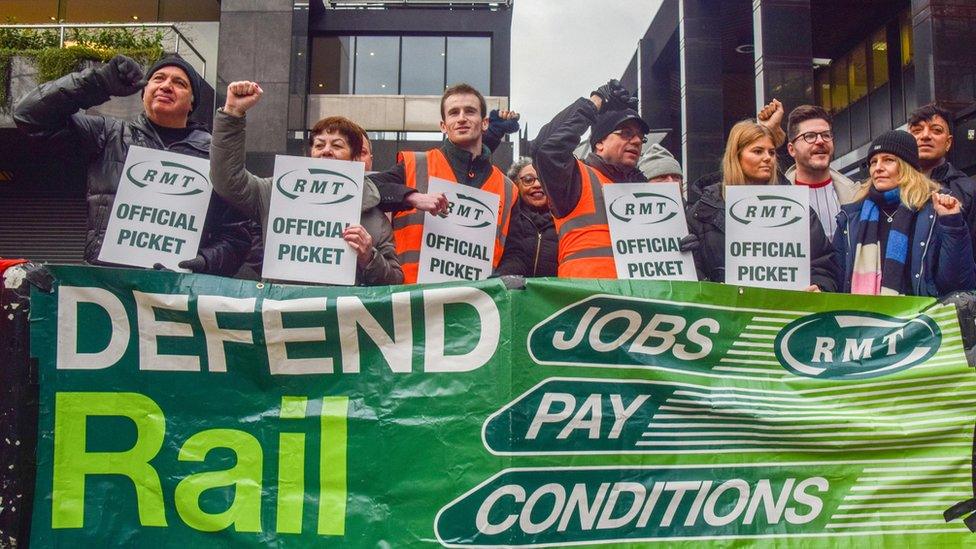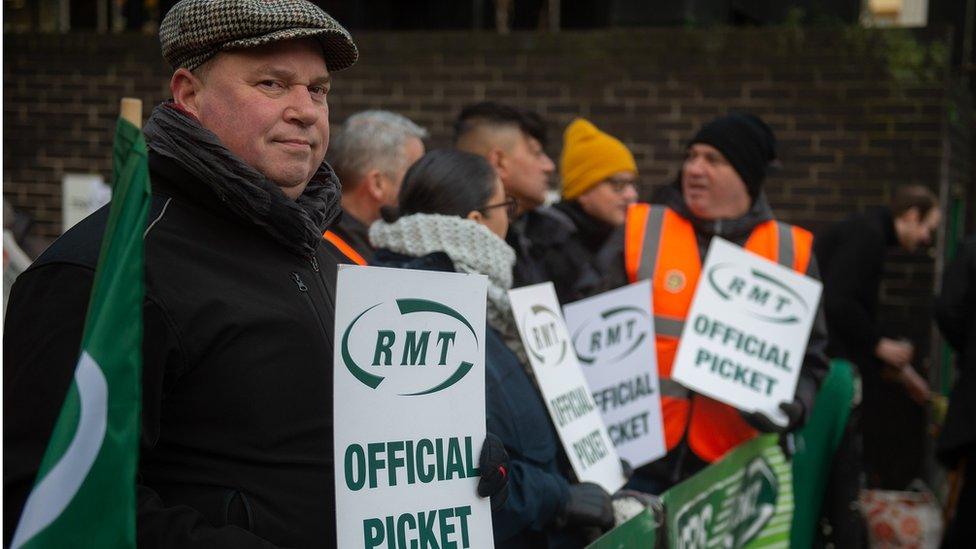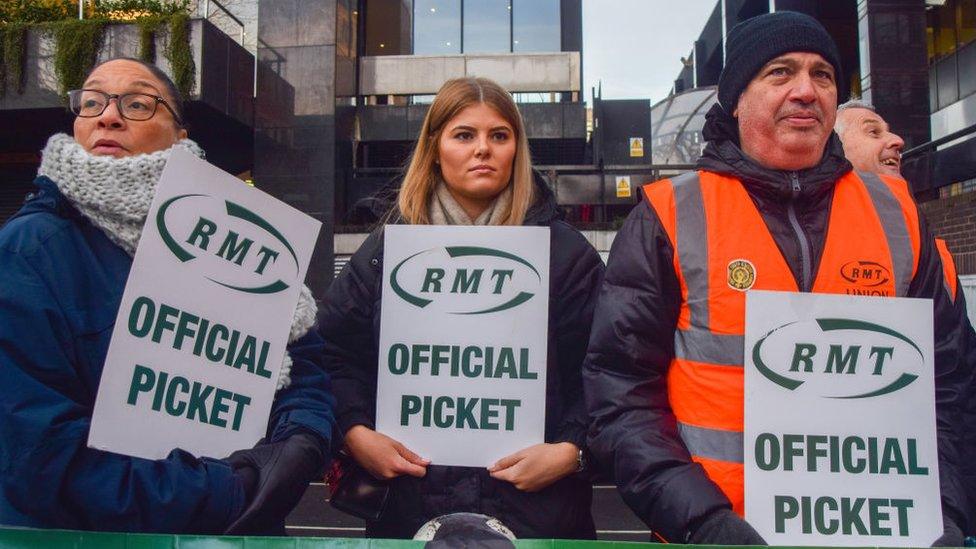More train strikes likely after RMT votes for further action
- Published
- comments

Rail travellers are facing disruption again after RMT members backed further strikes.
Industrial action across 14 train operating companies could continue until November after 90% of union members who voted backed more strikes.
It is the third time in a row railway workers have come out in favour of strike action since May last year.
Transport Secretary Mark Harper said he was "disappointed" by the RMT's decision.
The result from the latest ballot was on a turnout of 70% and around 20,000 workers were eligible to take part.
RMT general secretary Mick Lynch said the vote was a "de-facto referendum on the dispute", and called on the employers to get back around the table.
"This sends a clear message to the employers that the huge anger amongst rail workers is very real and they need to recognise that fact, face reality and make improved proposals," Mr Lynch said.
The Rail Delivery Group (RDG), which represents the 14 train operators, said the outcome was disappointing but not surprising.
The RMT's separate dispute with Network Rail ended in March, when maintenance and signalling staff accepted a deal.
But hopes of a breakthrough in the union's standoff with the train companies were dashed last Thursday, when the union rejected the Rail Delivery Group's latest proposals and announced a strike on Saturday 13 May - the date of the Eurovision final in Liverpool.
The government's response on Thursday night suggests it is not prepared to make any more money available for negotiations.
Mr Harper said: "Train companies put forward a fair and reasonable pay offer which the RMT's executive have refused to consult their members on.
"The Rail Delivery Group's best and final offer guarantees employees a fair and reasonable pay rise, while delivering the reforms needed to address the long-term challenges facing the industry."

The RDG also said on Thursday night the RMT had not given members a "single chance to have their say" on the deal which it said the executive committee had "rejected out of hand in unflattering terms".
"We can only assume the executive committee is fixed on continuing this dispute for its own reasons, despite the damage to an industry still being subsidised...to our passengers' lives and to Britain's reputation for hosting high profile events like Eurovision," the RDG added.
Last week, the train driver's union Aslef said its members would strike on 12 and 31 May and 3 June, the day of the FA Cup final.
Related topics
- Published30 April 2023

- Published9 May 2024

- Published28 April 2023
